15 satellite stations on key highways and
motorways aim to provide rapid emergency
assistance to travelers and nearby communities
Staff Reporter
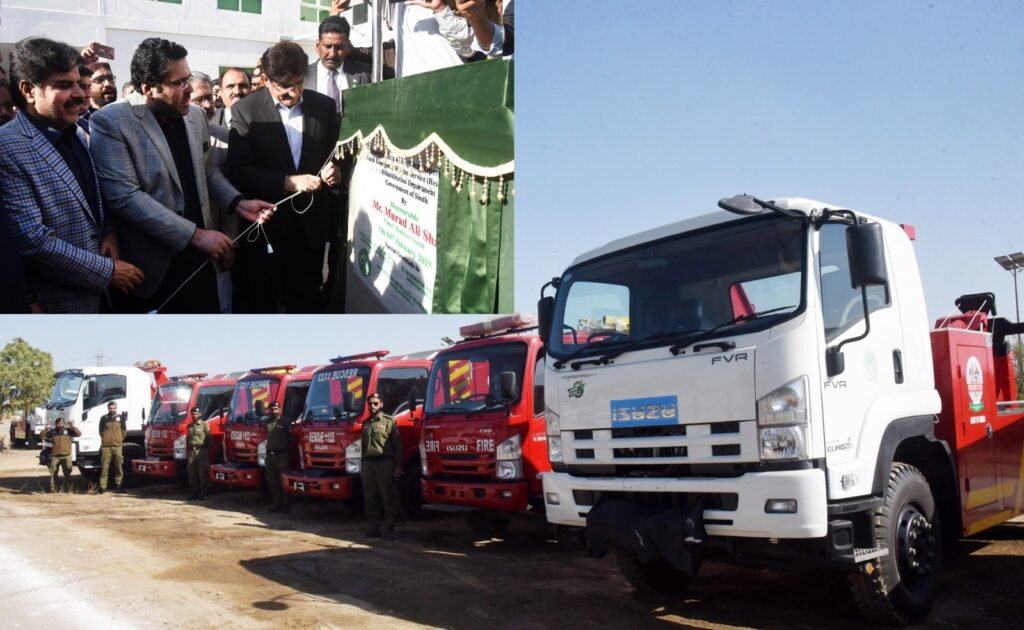
Karachi: Sindh Chief Minister Syed Murad Ali Shah inaugurated Rescue 1122’s Highway Operations, marking a major milestone in the province’s emergency response system.
This initiative, under the World Bank-supported Sindh Flood Emergency Rehabilitation Project (SFERP), has established 15 satellite stations on key highways and motorways. These stations aim to provide rapid emergency assistance to travelers and nearby communities, significantly strengthening Sindh’s disaster preparedness.
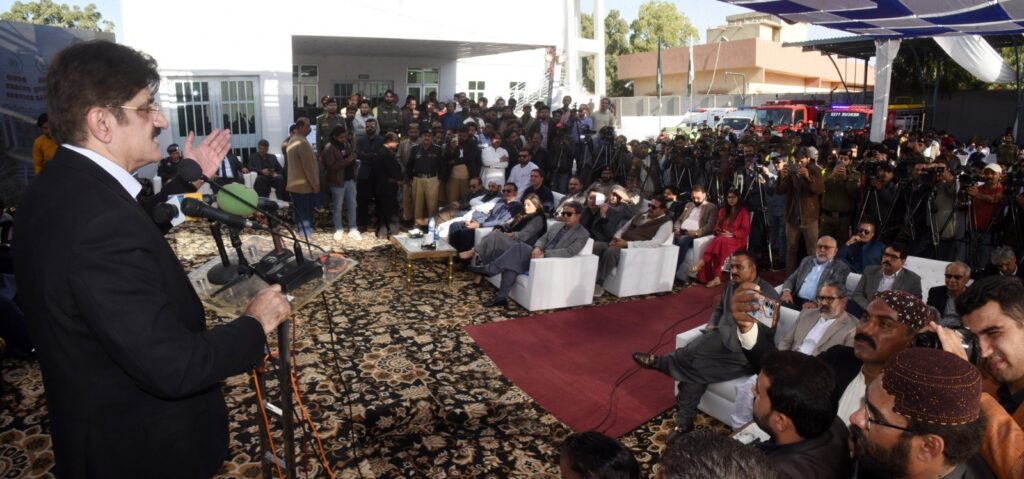
Advanced Facilities to Meet Emergency Needs
The newly operational Highway Rescue Stations, including the Gulshan-e-Maymar facility, are equipped with modern ambulances, fire trucks, disaster management tools, and recovery vehicles. These upgrades fill a critical gap in Sindh’s emergency services.
“Rescue 1122, launched in 2022, is transforming emergency response in Sindh,” said CM Shah. He added that highway operations will not only assist travelers but also support nearby districts in emergencies.
The Chief Minister announced plans to expand Rescue 1122 services to district and tehsil levels. He emphasized that the service, designed on international best practices, provides free medical, firefighting, and disaster response services via the unified helpline 1122.
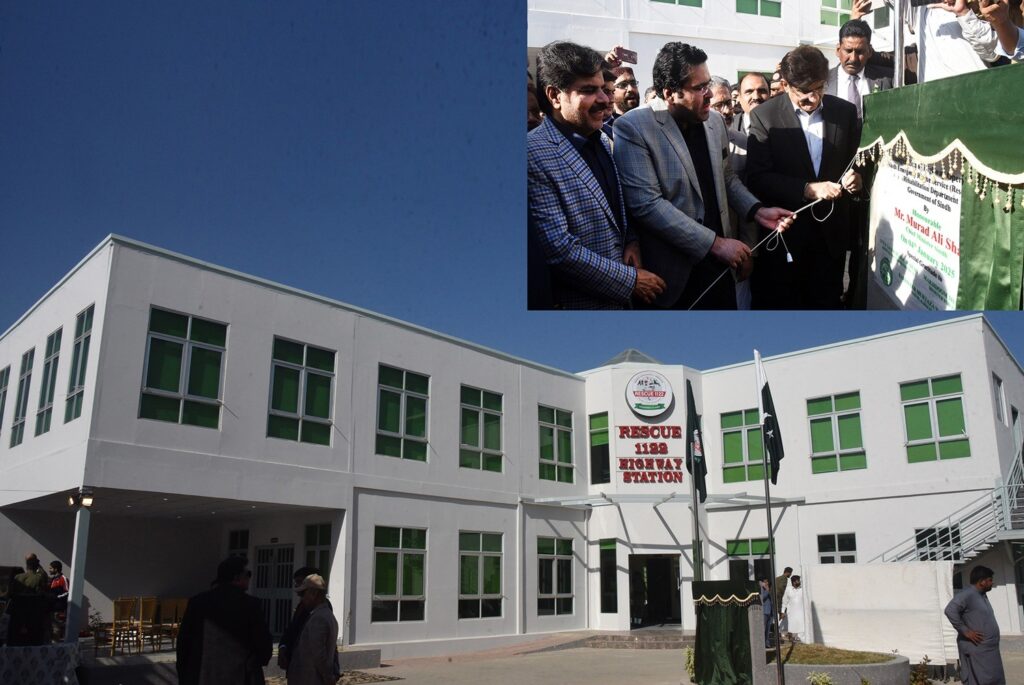
Government’s Commitment to Public Safety
Acknowledging support from Chairman Bilawal Bhutto Zardari and the World Bank, the CM praised Rescue 1122 staff for their dedication. “This expansion is a significant step towards a safer and more resilient Sindh,” he remarked.
Rehabilitation Minister Makhdoom Mahboob Zaman highlighted Rescue 1122’s impact, noting its response to over 700,000 emergencies since inception. Planning and Development Minister Nasir Shah announced complementary initiatives, including modernizing 10 hospital emergency wards, rehabilitating 836 kilometers of roads, and restoring 375 water supply schemes.
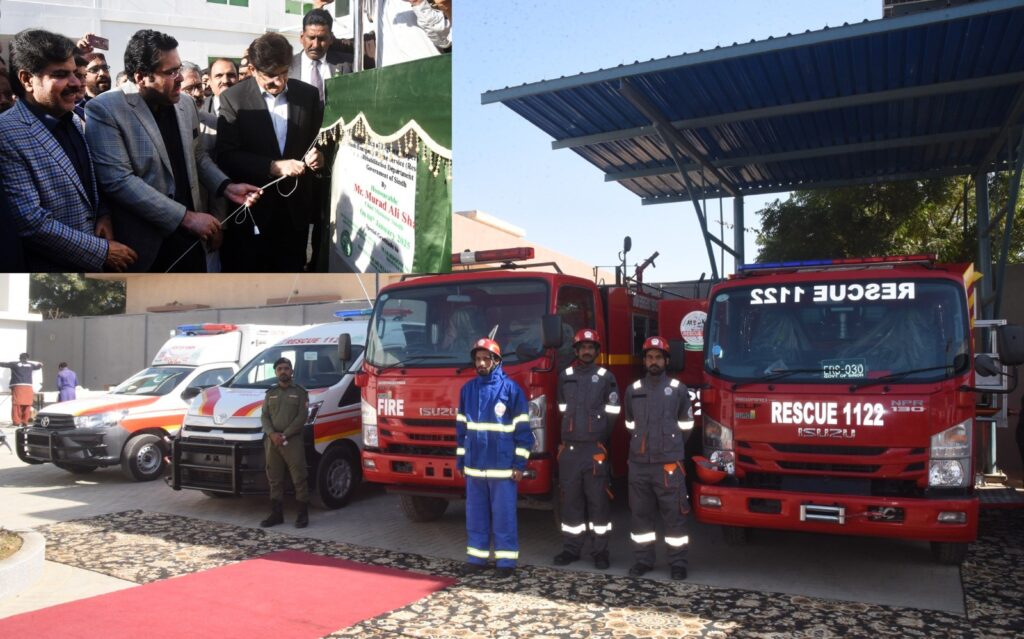
Focus on Infrastructure and Public Services
Mayor Karachi Murtaza Wahab lauded the government’s development projects but urged for a comprehensive drainage system. The CM assured plans to address water and drainage infrastructure under directives from the PPP Chairman.
During a media briefing, CM Shah discussed other key topics, including steps to address staffing issues at Jinnah Postgraduate Medical Centre (JPMC) and the National Institute of Child Health (NICH). He outlined measures to restore the Executive Director at JPMC and resolve court-related employment challenges to ensure patient care.
The government’s focus on expanding corporate farming through the Green Initiative and reclaiming illegally occupied government land was also discussed.
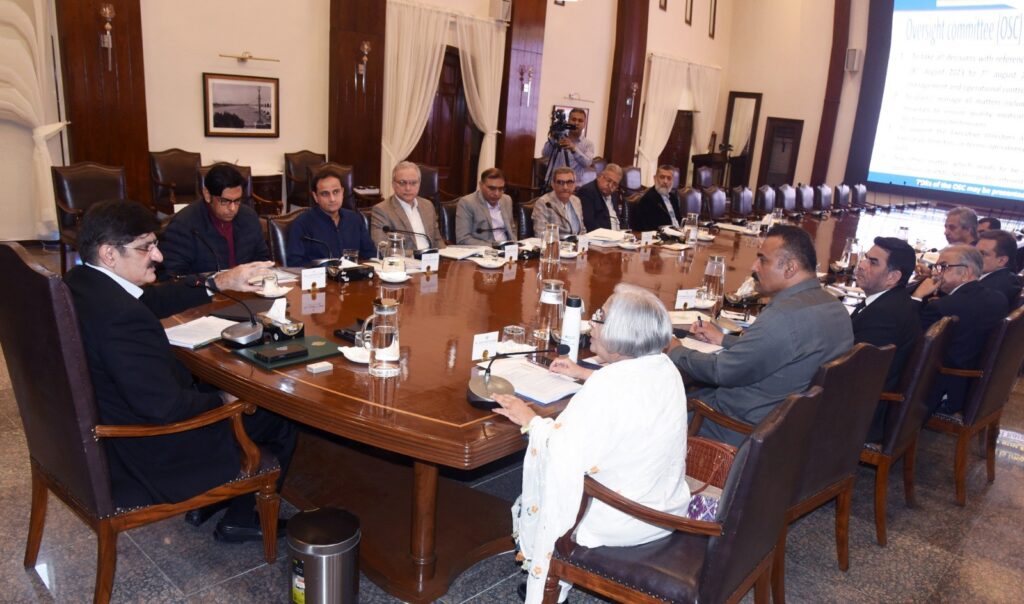
Long-Term Vision for Healthcare
In a separate meeting at CM house, the Chief Minister shared that JPMC and related facilities have grown from 2,092 to 4,041 beds over 12 years, with annual budgets increasing from Rs. 1.9 billion in 2011 to Rs. 25.75 billion in 2024.
The 25-year Operating and Management Agreement for JPMC and NICH, effective since August 2023, aims to ensure high-quality care and training. Efforts include creating 2,025 contractual clinical posts and promoting 56 permanent JPMC doctors to higher grades, enhancing healthcare capacity in the province.
Health Minister Dr. Azra Pechuho emphasized the need for faculty fulfillment through Jinnah Sindh Medical University (JSMU) and proposed incentives for doctors in teaching roles.
The Sindh government remains committed to enhancing emergency response, healthcare, and public safety infrastructure for the province’s development and resilience.























